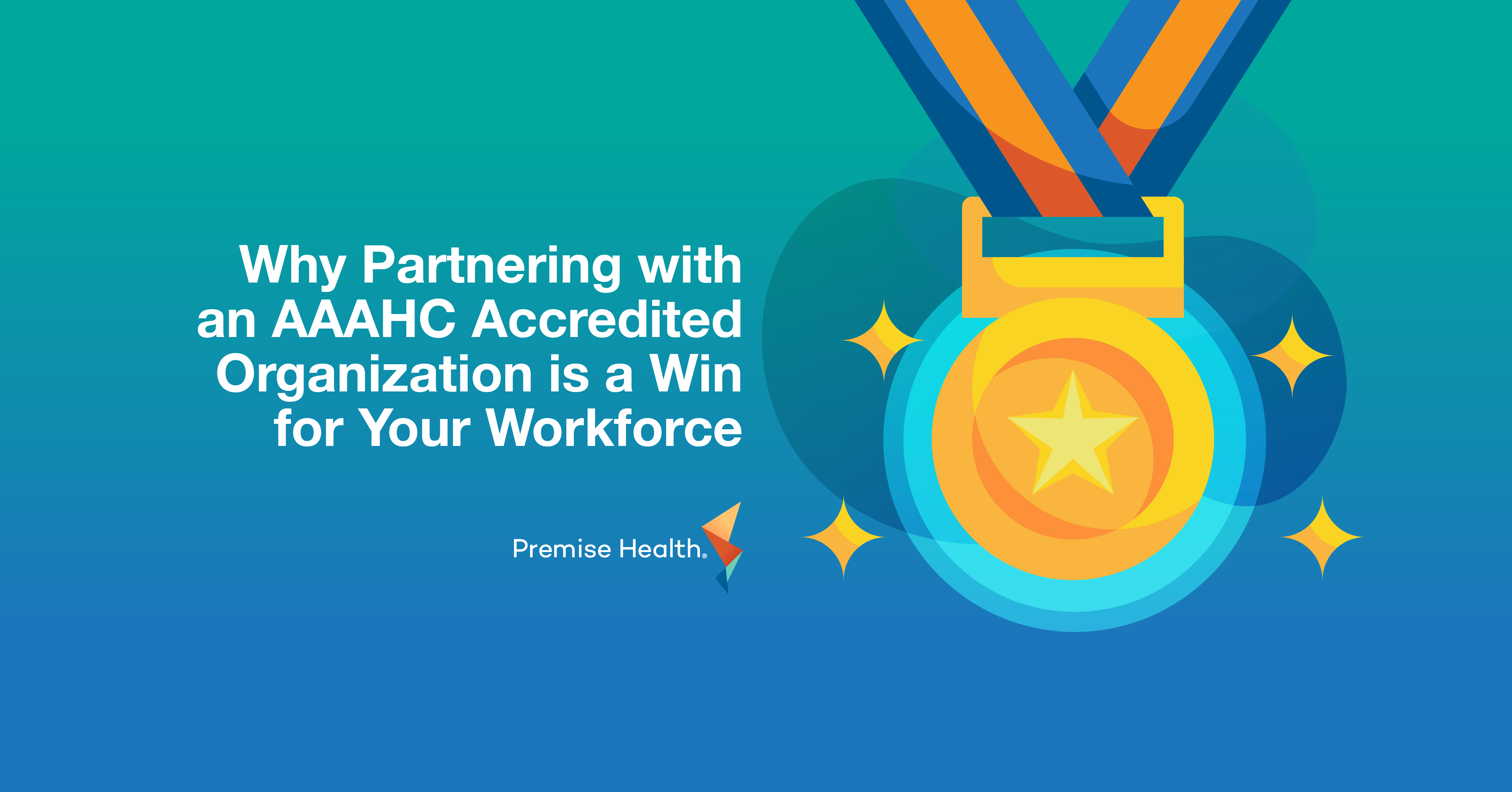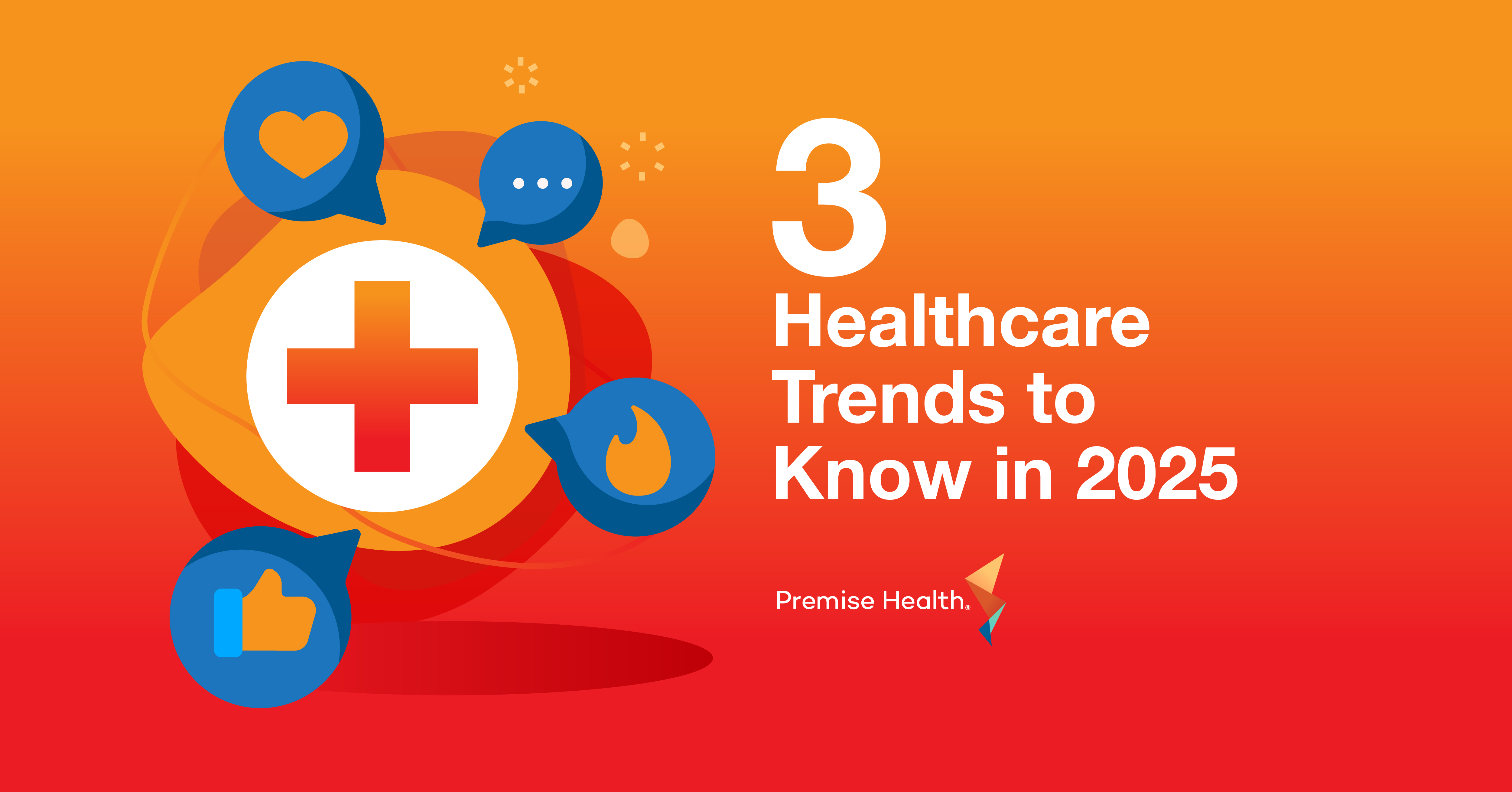How to Talk about Mental Health at Work
Over the last couple of years, we’ve witnessed a positive shift in how employers approach mental health. Companies have taken many steps to normalize conversations about mental health and reduce the stigmas associated with it. Still today, mental health continues to be a top priority for organizations as their employees face ongoing change and uncertainty.
By encouraging employees to take care of physical and mental wellbeing, employers help employees feel supported and connected to their work, which increases job performance. And when mental health challenges are addressed, companies often see a reduction in overall healthcare costs. We sat down with Amanda Chase, MA, NBC-HWC, LPC – Premise’s resident behavioral health expert – to further understand why the stigma around mental health exists and ways employers can help.
Why is mental health difficult to talk about in the workplace?
Most people fear judgment at work. Is my work good enough? Does my boss like me? What do my colleagues think of me? These are all common questions that exacerbate fear. Unfortunately, most people believe they could be looked down upon if they struggle with mental health or show any symptoms. Until recently, there has been a significant lack of support when discussing mental health in the workplace, so people avoided it. But the more we avoid addressing mental health, the more the stigma around it grows, which makes the problem worse.
What can employers do to improve the culture around mental health?
Organizations play a critical role in the mental health conversation. They can make a difference by not only encouraging employees to take care of themselves first, but also offering the appropriate support and resources to do so.
Here are five specific ways employers can help employees take care of their mental health:
Check in with employees. Short discussions with a colleague about how things are going can go a long way. Through time, connections form, comfort level increases, and trust builds, allowing for an open conversation around mental health.
Listen and practice empathy. Acknowledge the challenges others are facing. Before jumping to conclusions, employers must be willing to understand the “why” first. Listening is not trying to solve a problem but simply being present and creating space for a person to share their thoughts. Pause before responding so that you allow yourself the time to listen and digest their words.
Normalize talking about mental health. Encourage others to share their feelings in a safe, inclusive environment. It is crucial employees feel comfortable and never ashamed, judged, or embarrassed for discussing how they’re doing. Work is important, but employees cannot perform well if they don’t care for themselves first.
Provide access to programs. Be prepared for the conversation about mental health and have solutions in mind. Employers can provide a variety of resources such as an Employee Assistance Program (EAP), mental health coverage, or access to wellness programs helping with stress management and relaxation.
Behavioral health benefits. Providing benefits that support mental health needs gives employees the right resources and tools to get help when and where needed. When employers provide behavioral health resources to their employees, they are healthier individuals, and the organization’s culture is healthier, too.
Where Premise Fits In
Premise Health provides members with a variety of in-person and virtual access points to support their emotional and mental wellbeing. Our providers deliver high-quality behavioral healthcare, whether the need is preventive or involves critical interventions. Premise offers care through our Digital Wellness Center and onsite and nearsite wellness centers, giving members the ability to get care how, when, and where they feel most comfortable, whether in person, telephonically, or through video. Our behavioral health approach is seamlessly integrated with primary care so we can easily refer members to our licensed counselors to address issues. To learn more, visit here.
Next on industry insights.

How to Futureproof Your Healthcare Benefits
Read the Blog
Why Partnering with an AAAHC Accredited Organization is a Win for Your Workforce
Read the Blog